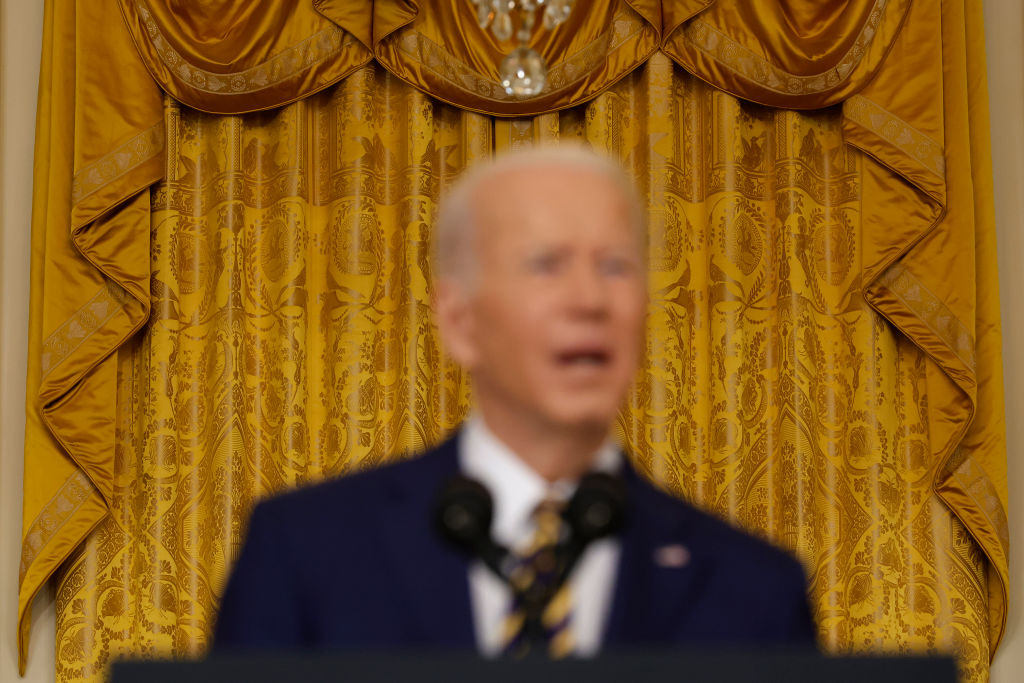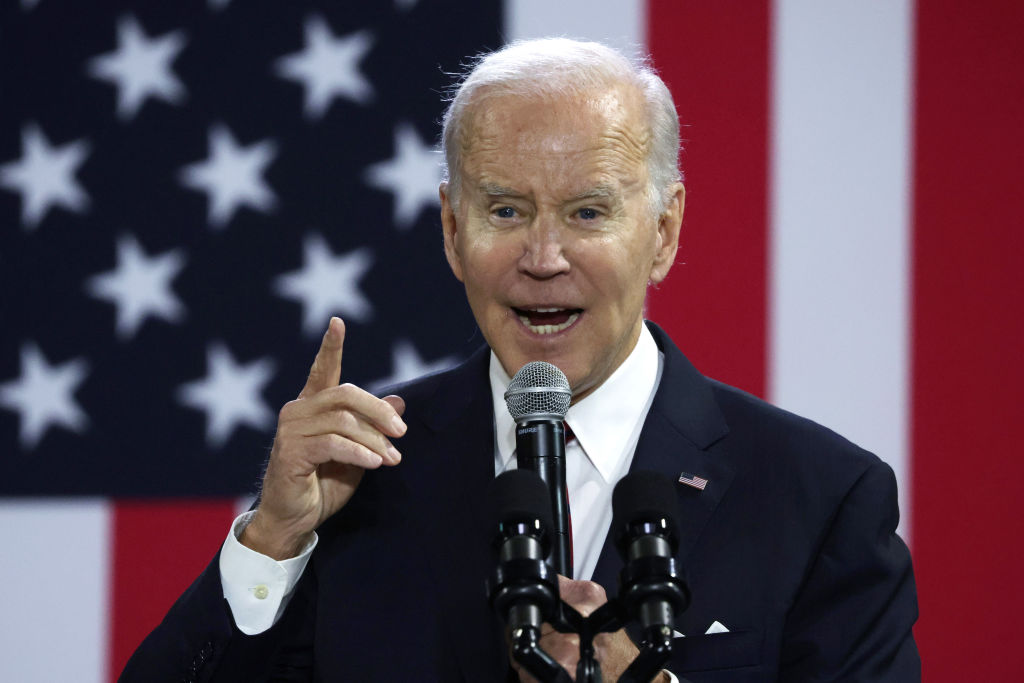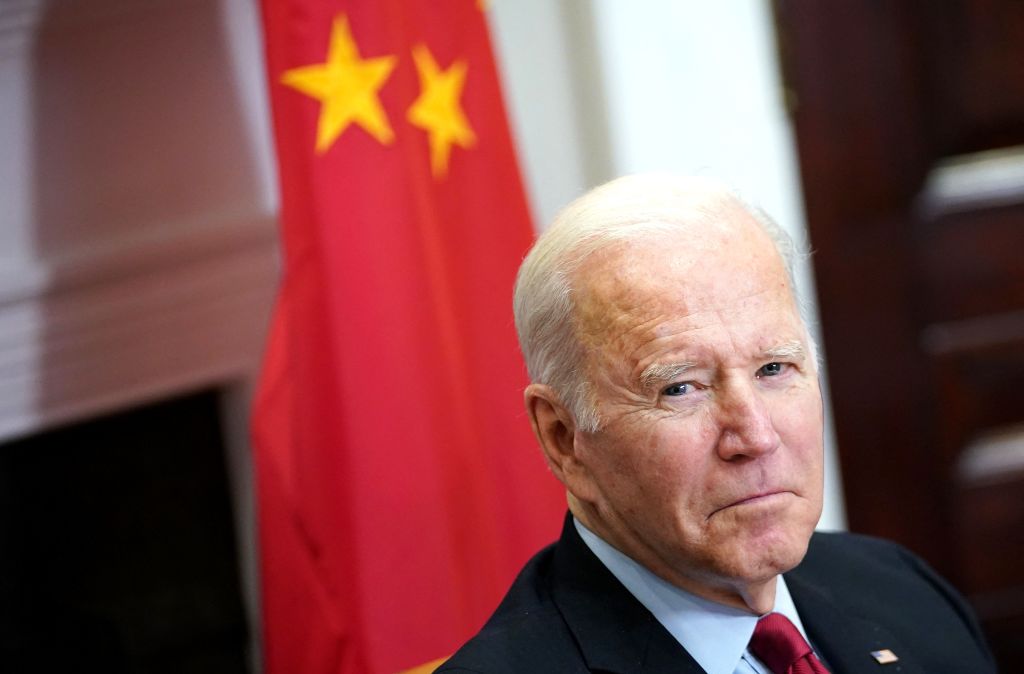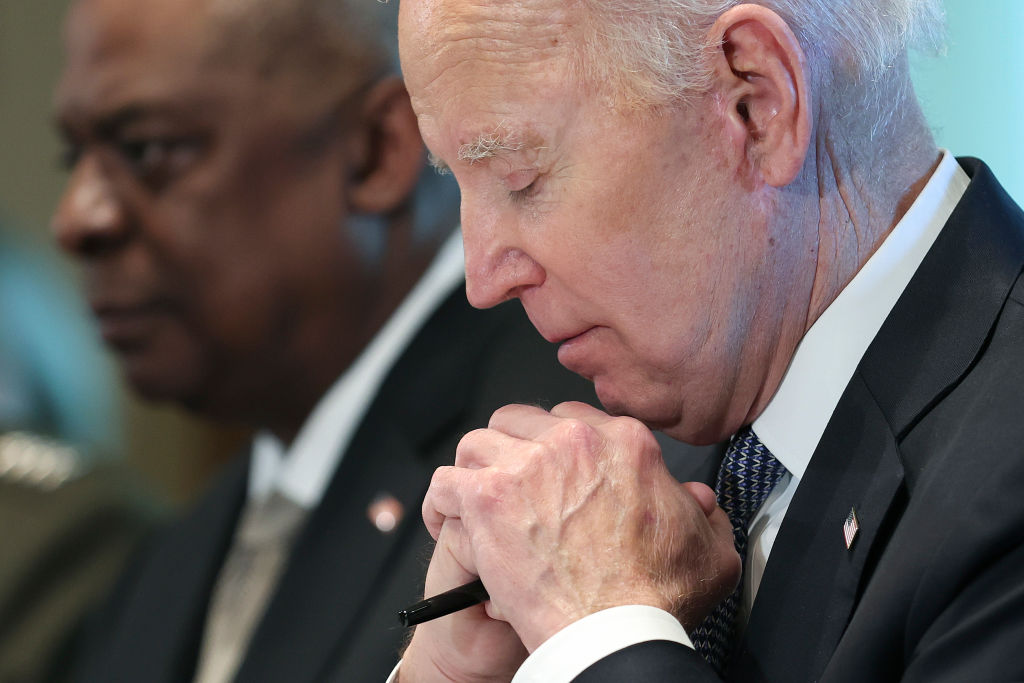The White House press secretary is a perfect representative of our spiteful ruling class.
Student Debt Overreach

A Texas court puts the brakes on an astounding executive branch power grab.
In a court order issued in early November, Federal District Court Judge Mark Pittman dusted off his ninth-grade U.S. Government textbook to explain something every American used to know: “In this country, we are not ruled by an all-powerful executive with a pen and a phone.” Judge Pittman cited James Madison, the principal architect of the U.S. Constitution, in his opinion vacating President Biden’s executive action forcing taxpayers to absorb over $400 billion in student loan debt: “[t]he accumulation of all powers, legislative, executive, and judiciary, in the same hands . . . may justly be pronounced the very definition of tyranny.” Unchastened, the Biden Administration immediately appealed the decision.
There is no ready analogy in American history for the Biden Administration’s borrower bailout. It is unprecedented in audacity and cynicism—has any president ever imagined he could spend $400 billion without congressional action? The legal justification for it is tenuous and unpersuasive. The Biden Department of Education (ED) claims it has the authority to cancel these loans under the HEROES Act, a 2003 law designed to benefit American servicemen and women. House Speaker Nancy Pelosi emphatically dismissed the idea that the administration has the authority to enact blanket loan cancelation as recently as 2021, a view the president himself intimated he shared before the inauguration.
And yet, in August, Education Secretary Miguel Cardona promised to wash away up to $20,000 per borrower for families with incomes under $250,000. Most observers believed that the action stood a good chance of going into effect despite ED’s dubious claim to legal authority because of arcane difficulties associated with the question of standing—that is, the right to claim harm—in federal court. The administration attempted to unlawfully redistribute almost a half-trillion dollars from ordinary taxpayers to college-educated Americans on the eve of an election, hoping the scheme would survive thanks to the cynical exploitation of a gaping legal loophole.
The ultimate fate of the borrower bailout will depend on legal battles yet to come. ED has suspended the program pending its appeal. If the Fifth Circuit Court of Appeals agrees with Judge Pittman, it would be a spectacular backfire for the administration, which could mark an important step toward constitutional restoration. In a ripe irony, the Borrower Bailout case could ultimately curtail federal agencies’ ability to exercise undelegated authority to pursue ends not authorized by Congress.
How did the plaintiffs in Myra Brown et al. v. U.S. Department of Education crack the standing nut? They did not argue that they have been injured simply, because they do not qualify for the maximum amount of debt relief, though that is a part of it. They argued that they could not object to the plan, proposing revisions, because the administration did not undertake a full notice-and-comment rulemaking procedure as required by the Administrative Procedures Act (APA). As such, they contend they were deprived of an important APA procedural right that could have resulted in changes to the program that would have extended additional financial benefit to them.
Judge Pittman agreed that the plaintiffs had standing on the procedural rights ground. On review, however, the court found no violation of the APA because the HEROES Act includes an exemption to the APA’s notice-and-comment requirement.
“Whether the HEROES Act authorized the Program,” Judge Pittman observes, “is a different story.” Citing West Virginia v. the Environmental Protection Agency (EPA), a case from the Supreme Court’s historic 2022 term, the district court invokes the major questions doctrine, which specifies that “when an agency seeks to resolve a major question, a ‘merely plausible textual basis for the agency action’ is not enough. ‘The agency instead must point to ‘clear congressional authorization’ for the power it claims.’”
The major questions doctrine applies when an agency claims the power “to make decisions of vast ‘economic and political significance.’” Noting that previous courts have considered economic impacts in the range of $3 billion and $50 billion to rise to the level of “vast” economic significance, the court draws the reasonable conclusion that a $400 billion wealth transfer also qualifies. It establishes that the borrower bailout meets the threshold for political significance, observing that Congress has considered several bills designed to relieve student loan debt, all of which have failed. Again, in reliance upon West Virginia v. EPA, Judge Pittman explains that when agencies act to implement policies the Congress “considered and rejected . . . that too may be a sign that an agency is attempting to work around the legislative process to resolve for itself a question of great political significance.” Imagine that: bureaucrats cannot do by fiat what a congressional majority has rejected.
Which gets us back to the question the Biden Administration hoped no court would have cause to consider: does the HEROES Act authorize the Department of Education to cancel student debt en masse? Judge Pittman concludes it does not for three significant reasons. Most obviously, “the HEROES Act does not mention loan forgiveness.” The clear text of the Act allows the Secretary of Education to “waive or modify” loans to avoid unduly burdening U.S. servicemen and women. The court also found that “it is unclear if COVID-19 is still a ‘national emergency’ under the Act” (a precondition for loan modification) given that the president himself declared the pandemic “over” weeks before invoking its authority. Finally, the court observes that the HEROES Act has never been used for across-the-board loan forgiveness. In fact, the previous administration expressly denied it conveyed the authority to undertake a generalized cancelation of student loan debt. When bureaucrats suddenly find an elephant-sized power, claiming Congress hid it in a mousehole, courts should take notice.
All of which is to say the Biden Administration’s Borrower Bailout may yet have a happy ending—even if the Texas case fails on appeal. The Eighth Circuit Court of Appeals has issued a nationwide injunction in a case brought by six states. In the meantime, a new Congress will convene; the Republican-led House of Representatives will have a rock-solid pathway to standing should it also choose to file suit. With action on so many fronts, it is hard to imagine the Supreme Court will not ultimately be forced to weigh in.
If the Texas case succeeds and marks the beginning of widespread application of the major-questions doctrine, we may one day look back at student debt cancellation as the egregious peak of unchecked bureaucratic overreach and an important turning point in the country’s history. If so, we can look forward to a gradual dismantling of the administrative state in the coming years and decades—and, as a result, perhaps a revitalized Congress—all thanks to President Trump’s originalist appointments to the courts and the Supreme Court’s remarkable 2022 term. As Judge Pittman rightly observes, “it is fundamental to the survival of our Republic that the separation of powers as outlined in our Constitution be preserved.” American liberties and governance tempered by the consent of the governed depend on it.
The American Mind presents a range of perspectives. Views are writers’ own and do not necessarily represent those of The Claremont Institute.
The American Mind is a publication of the Claremont Institute, a non-profit 501(c)(3) organization, dedicated to restoring the principles of the American Founding to their rightful, preeminent authority in our national life. Interested in supporting our work? Gifts to the Claremont Institute are tax-deductible.
Zimbabwe-style monetary policy comes to the U.S. Mint.
The administration routinely disregards the Constitution, federal statutes, and republican norms.
Like a parody disaster movie, but real.
The Biden Administration sets tough new trade policies against Beijing, but is it too little, too late?
The administration threatens to use U.S. power globally to advance its progressive agenda.






